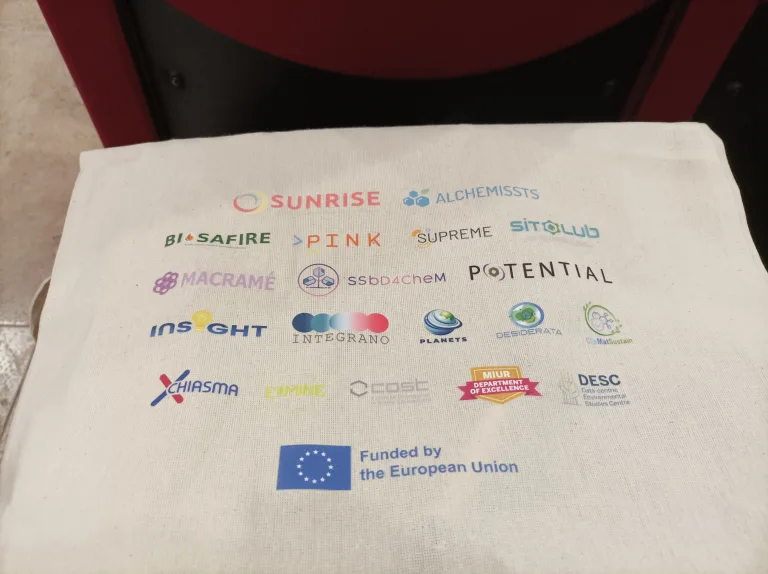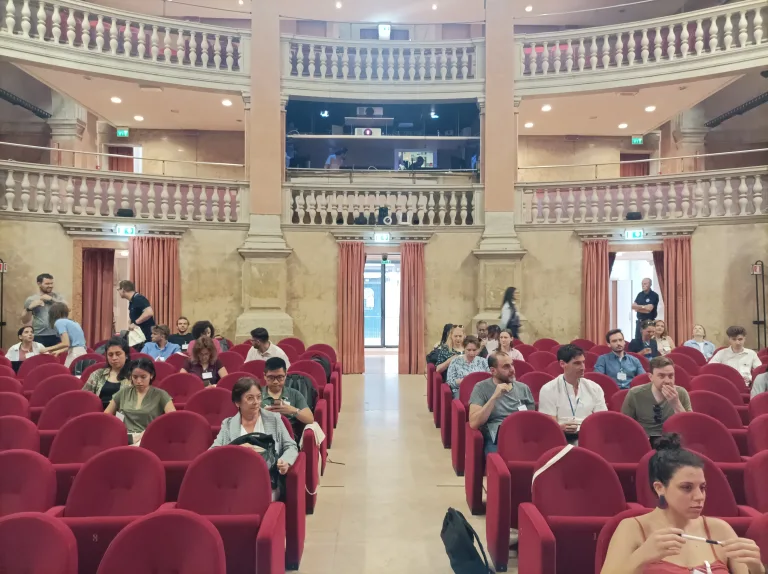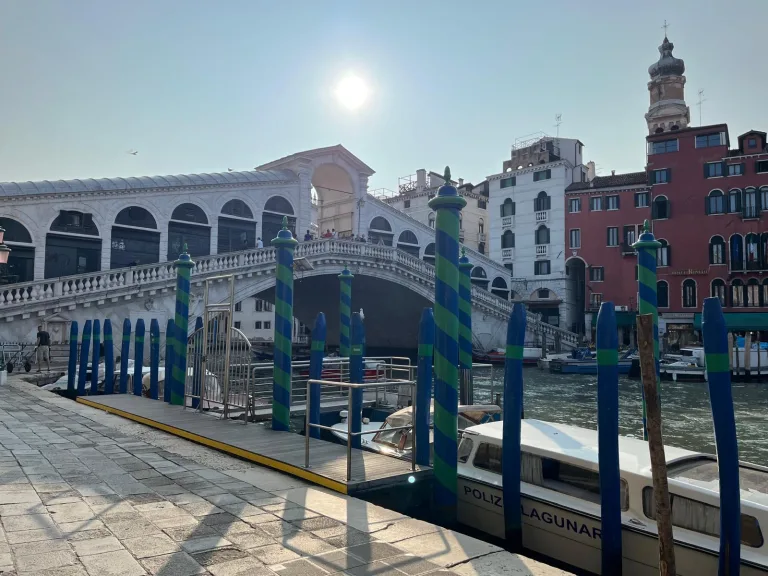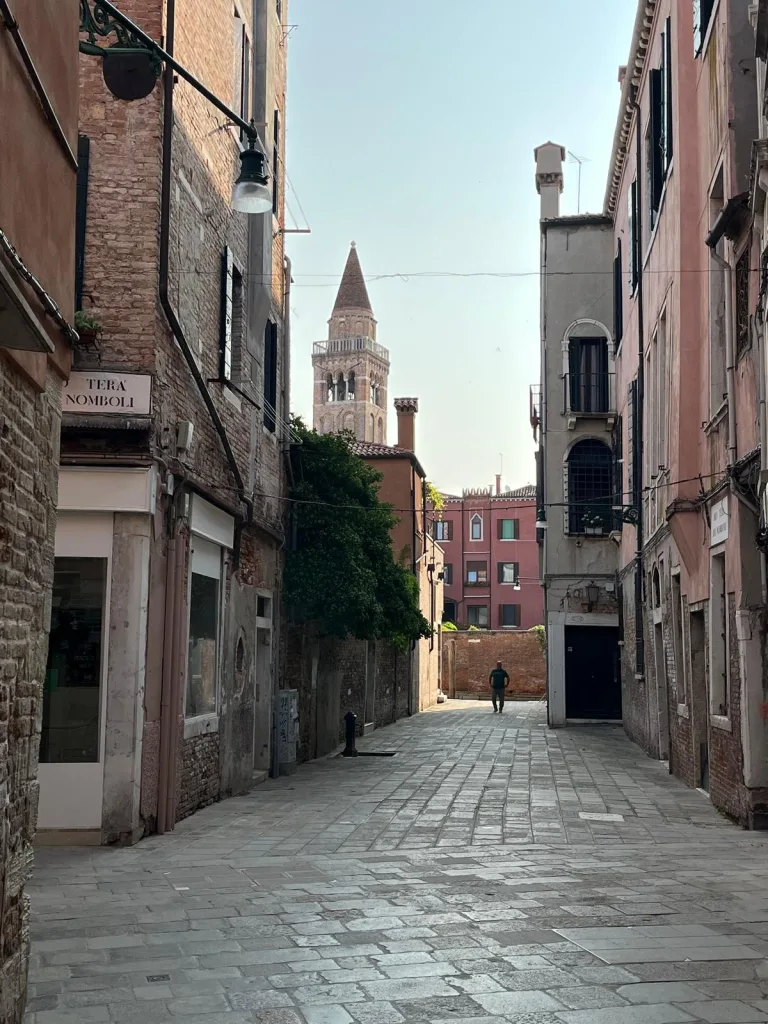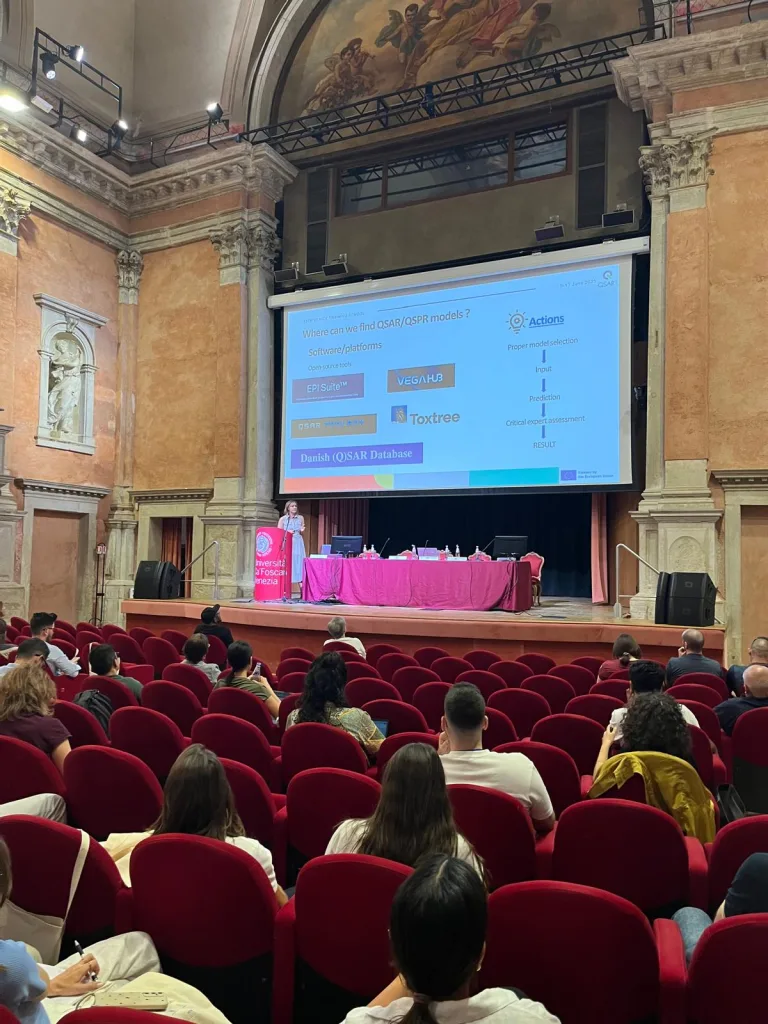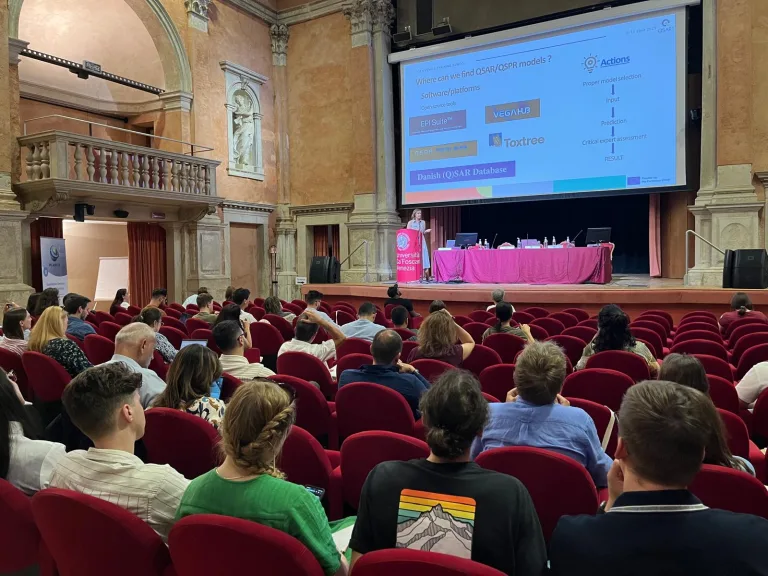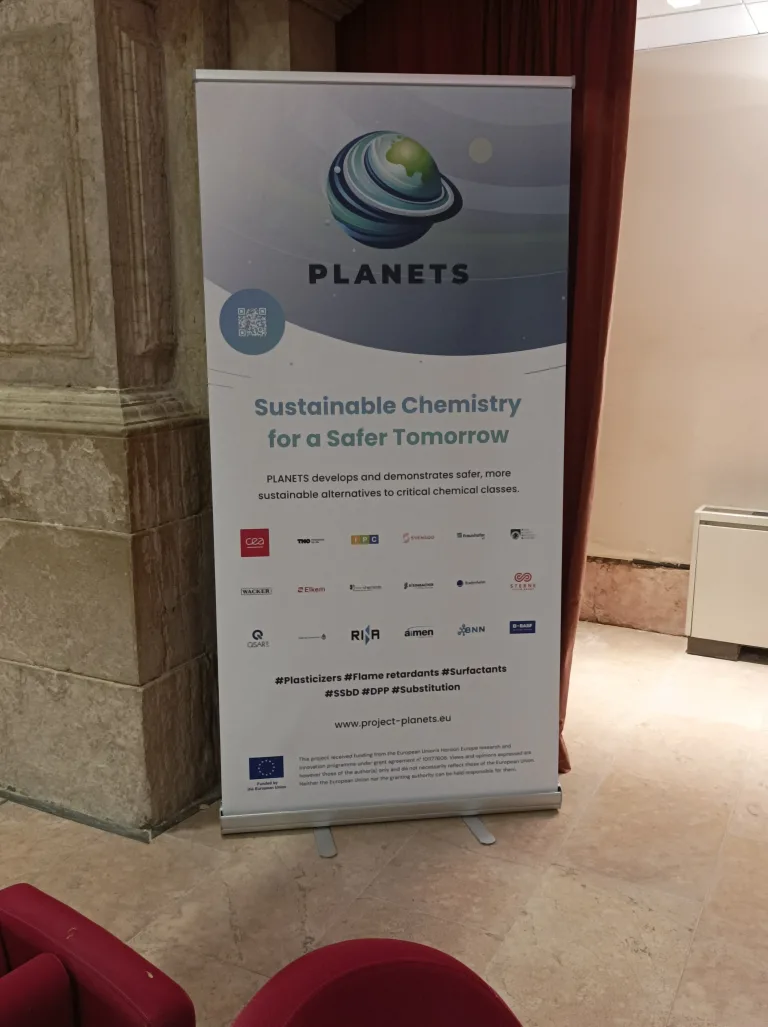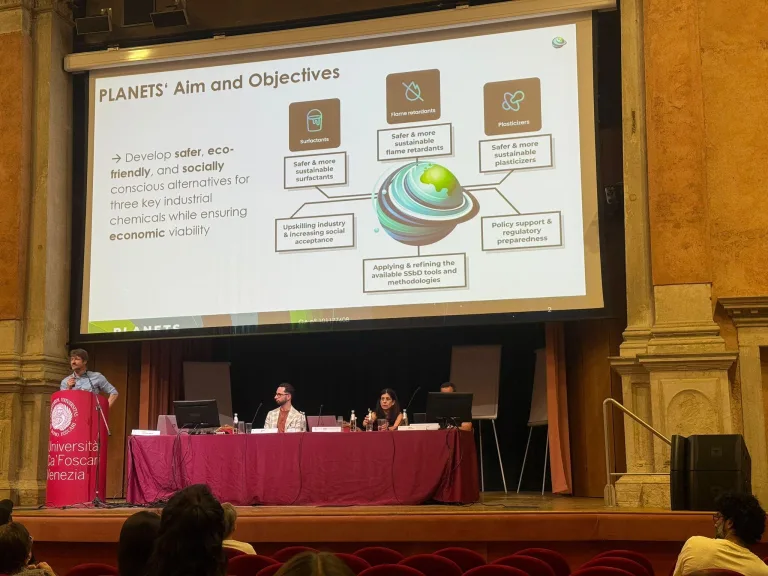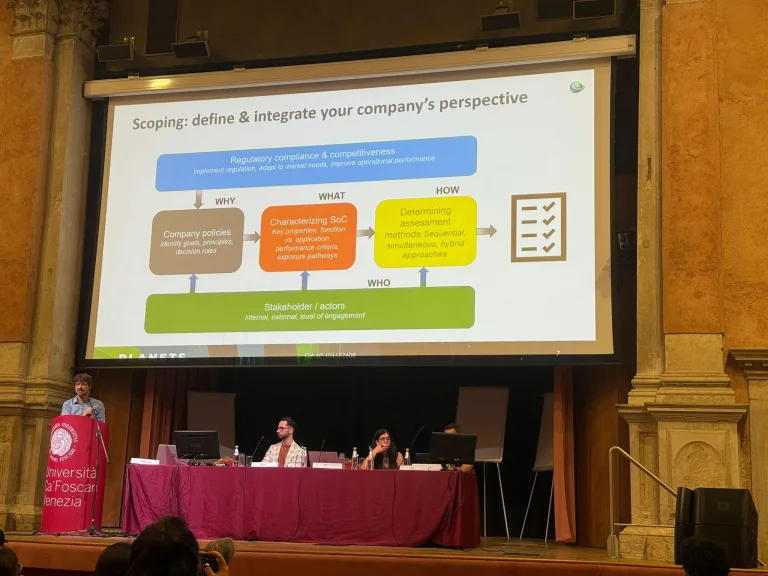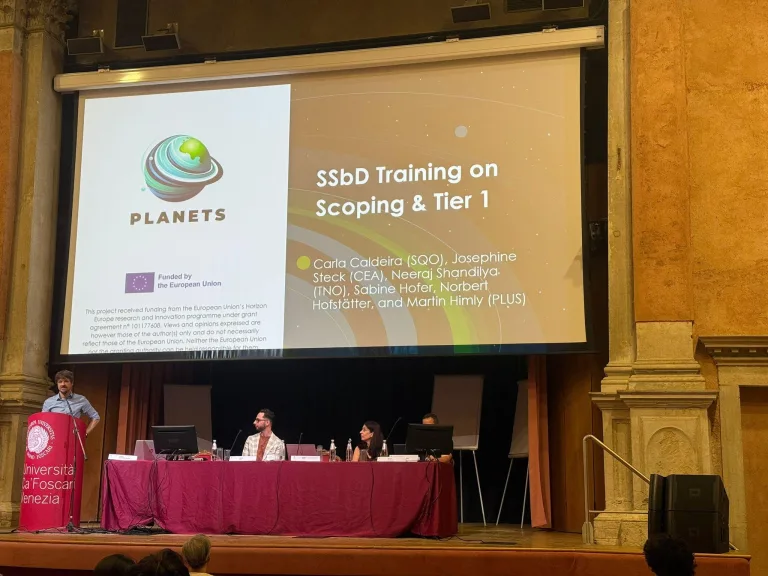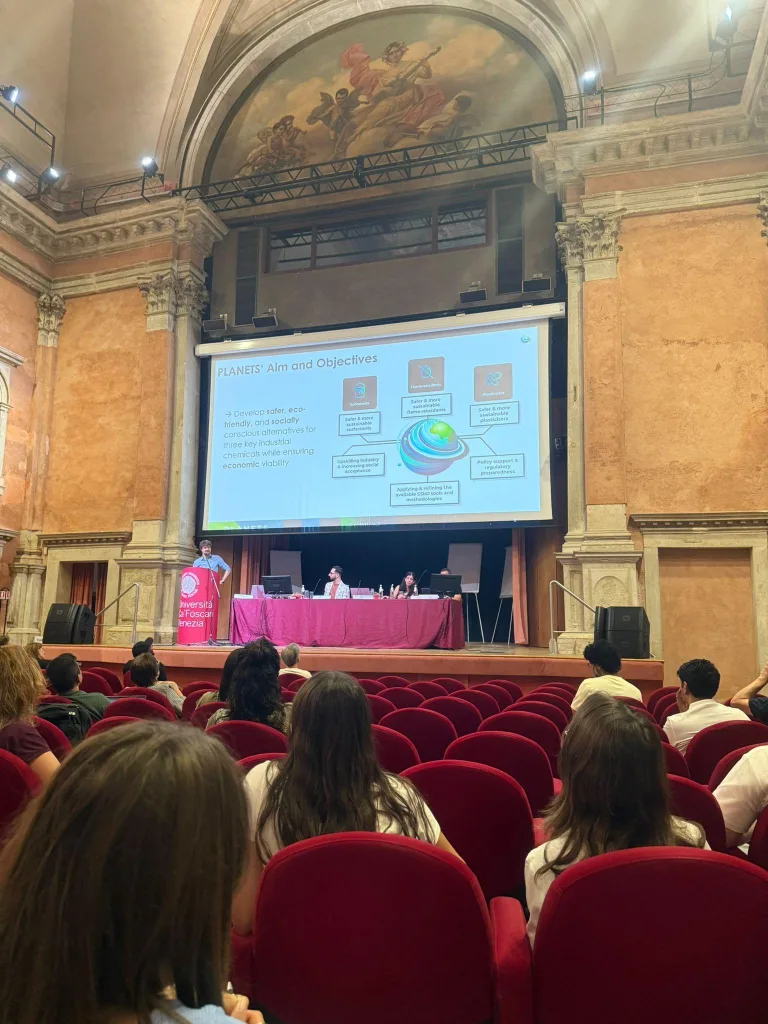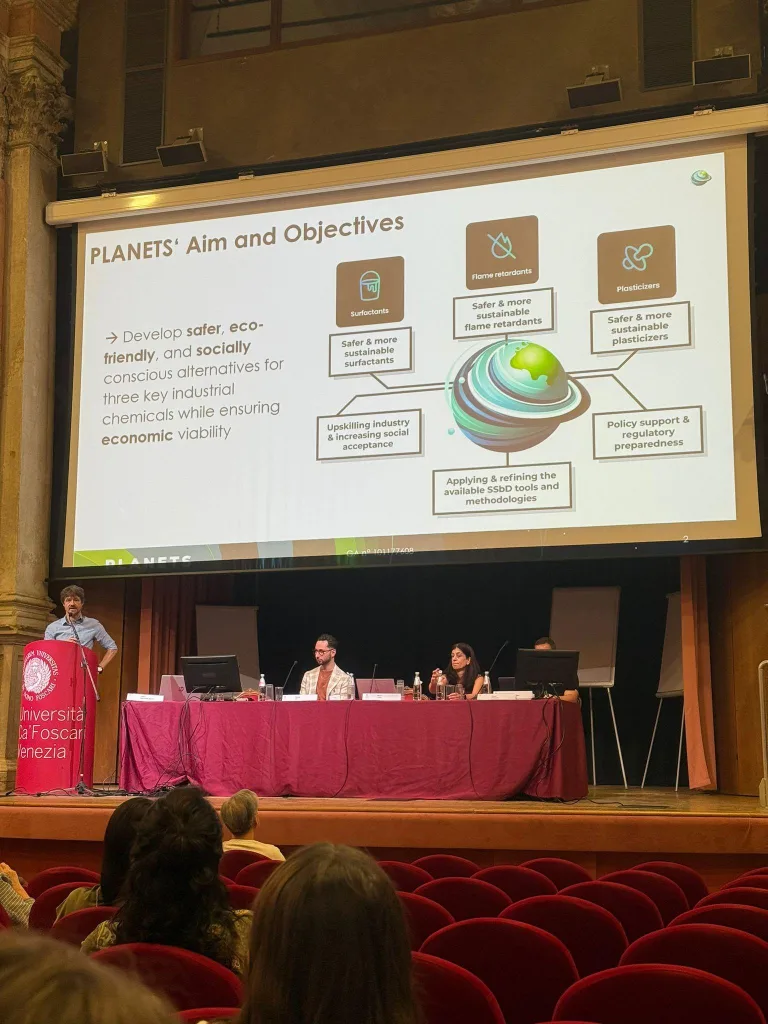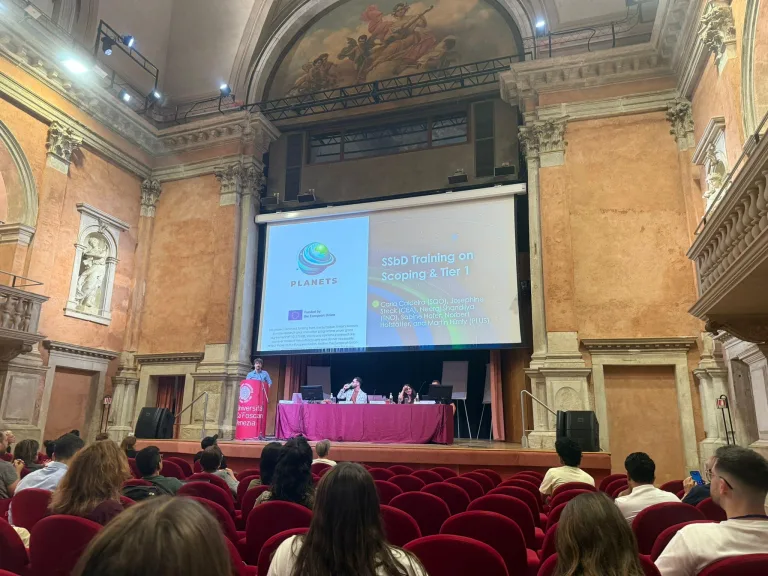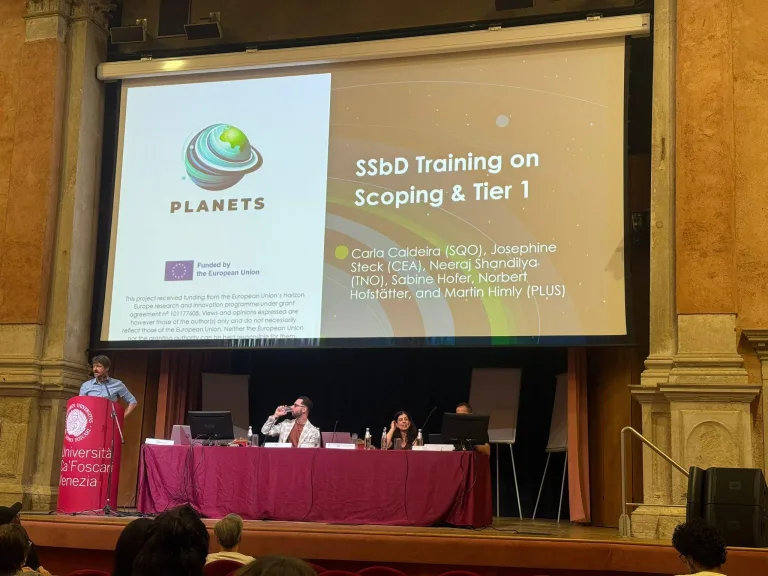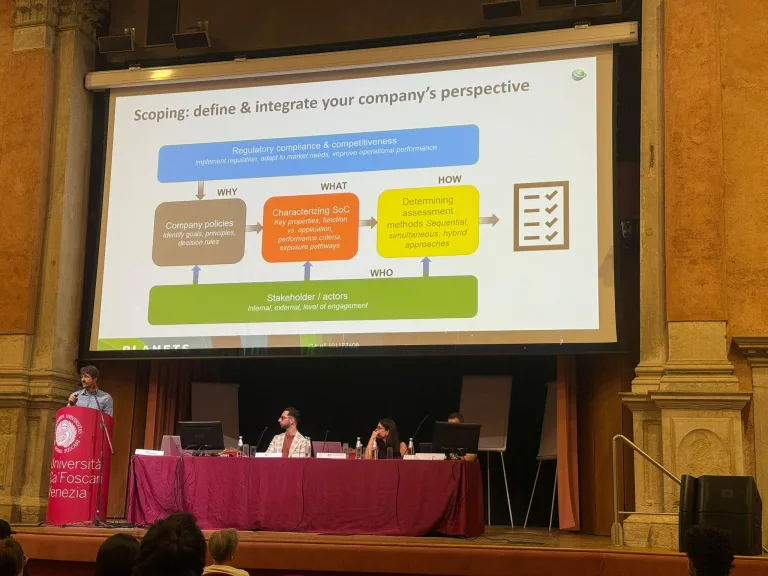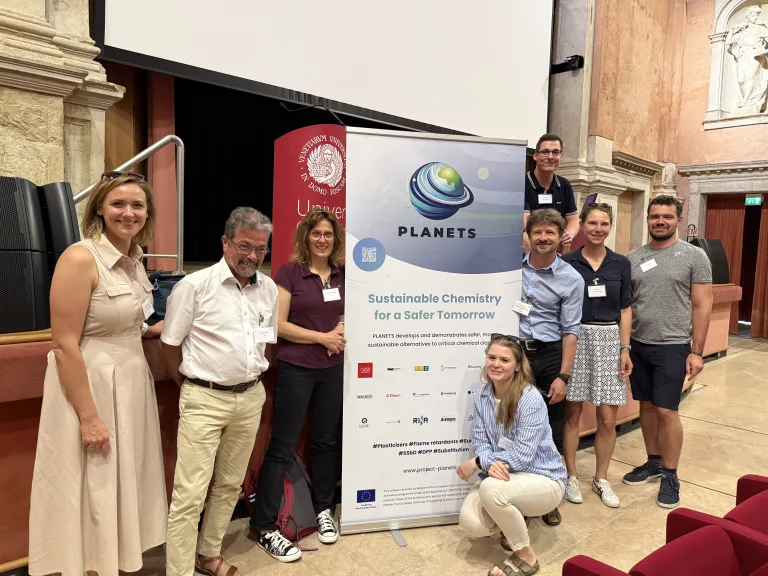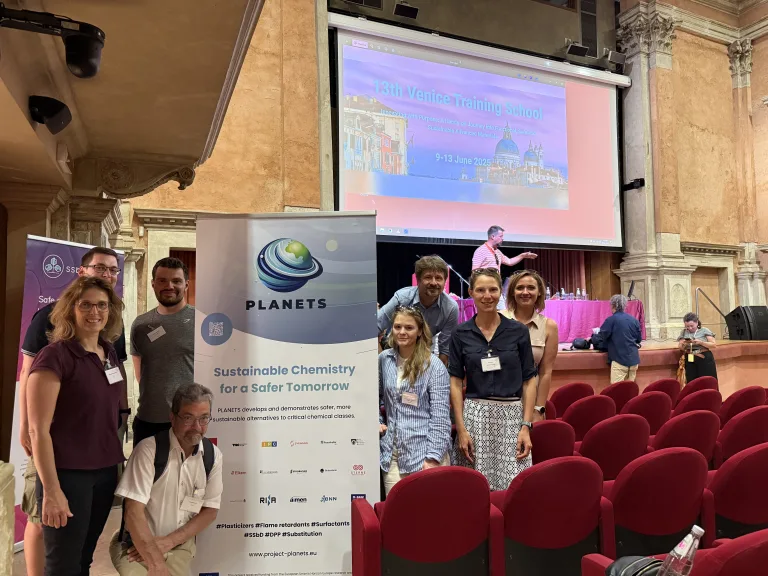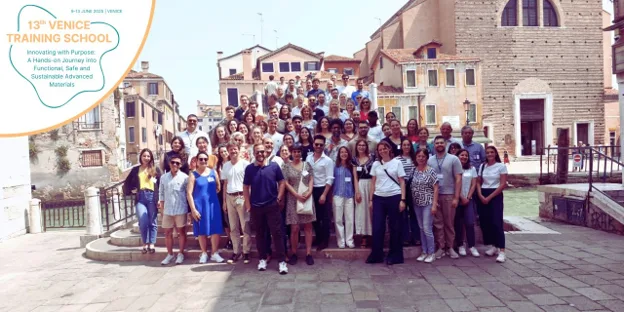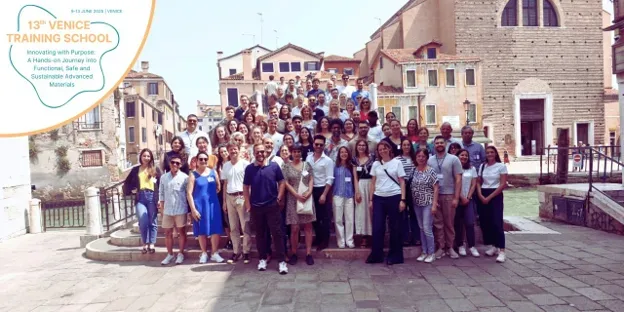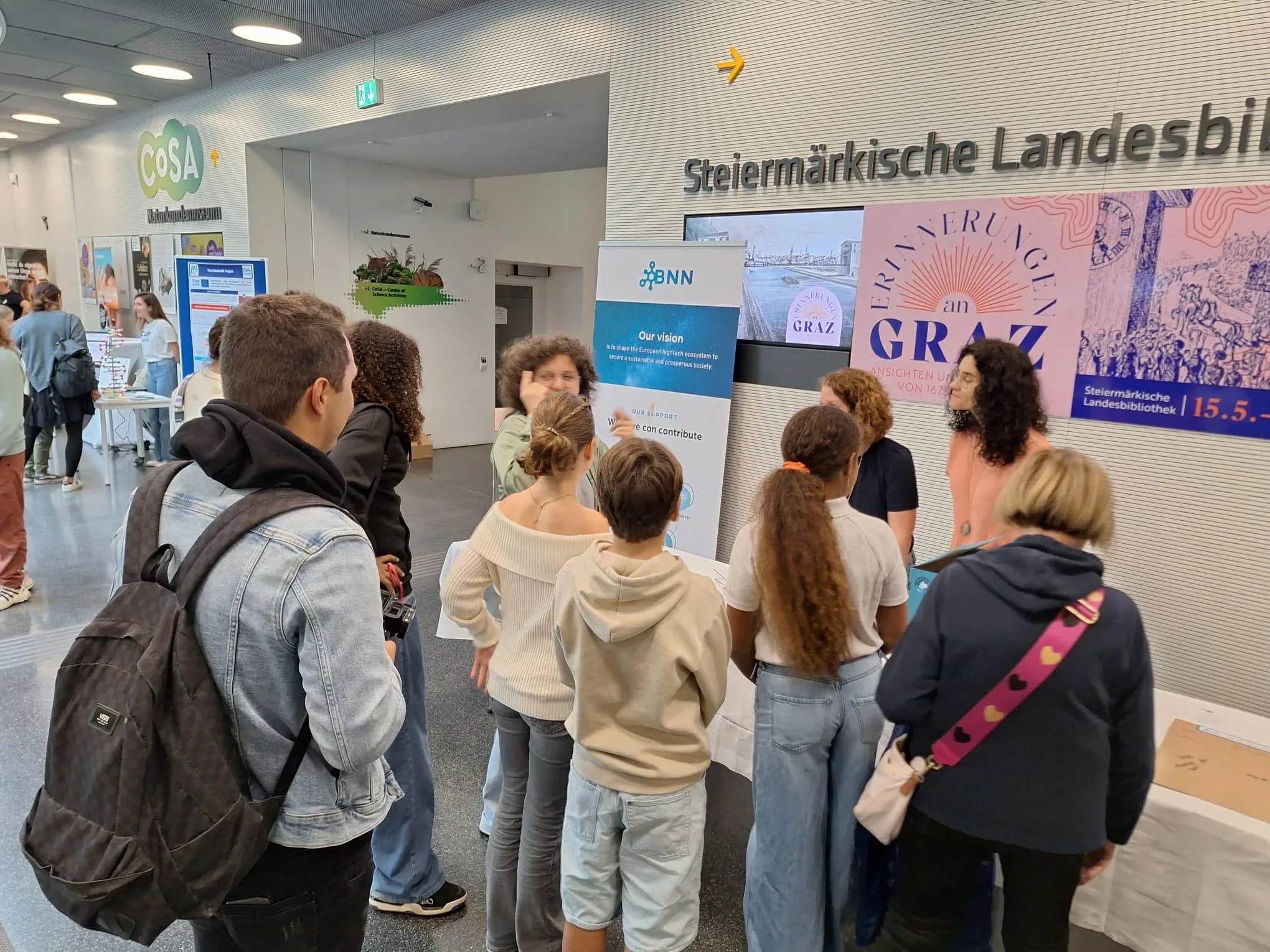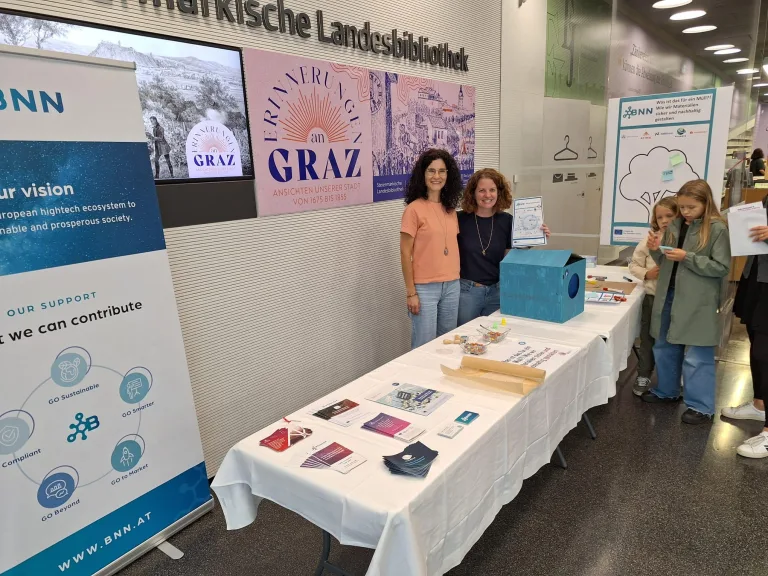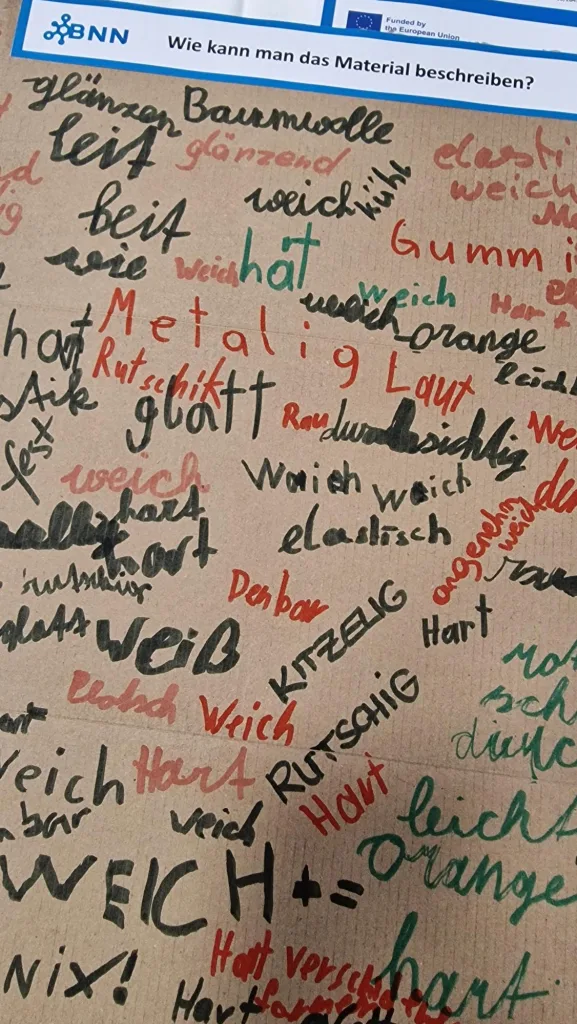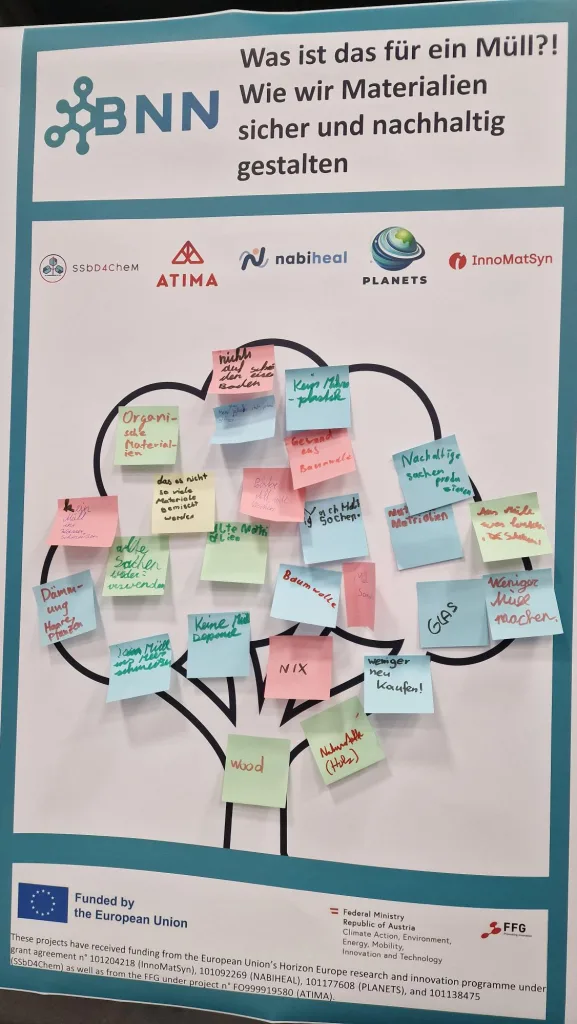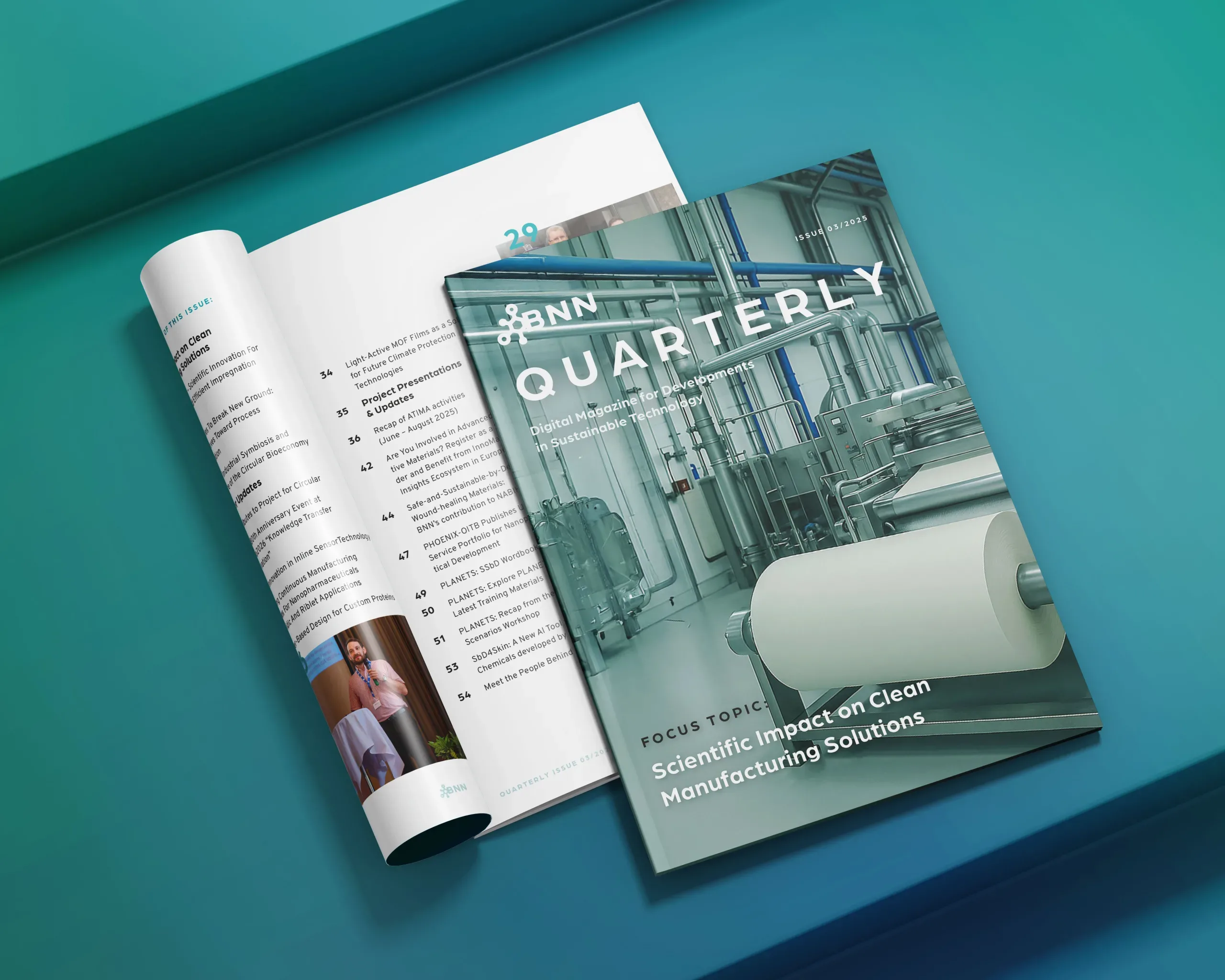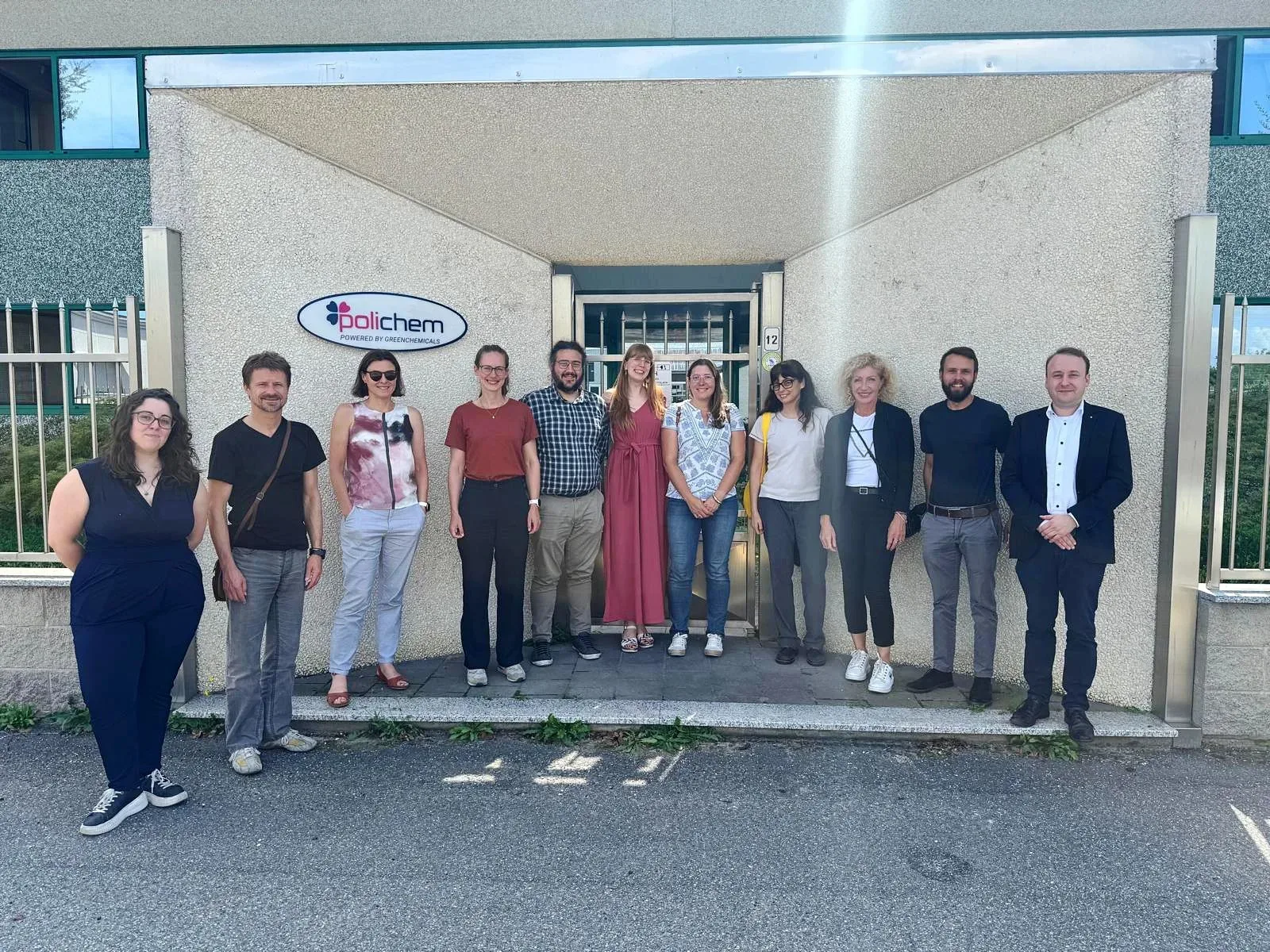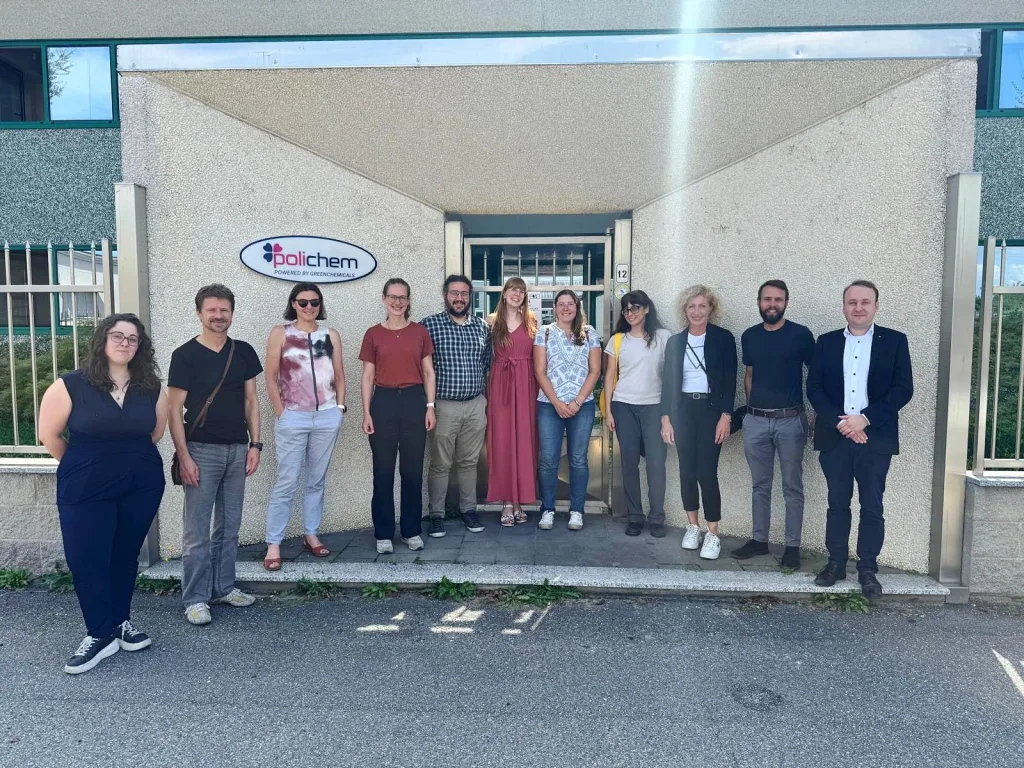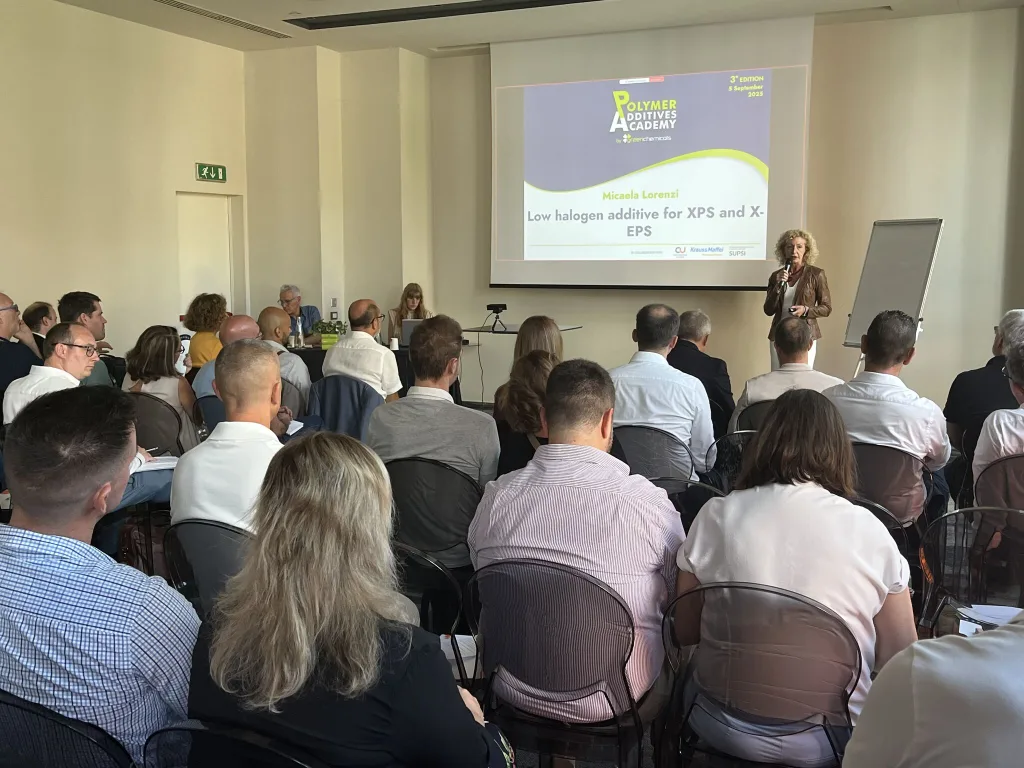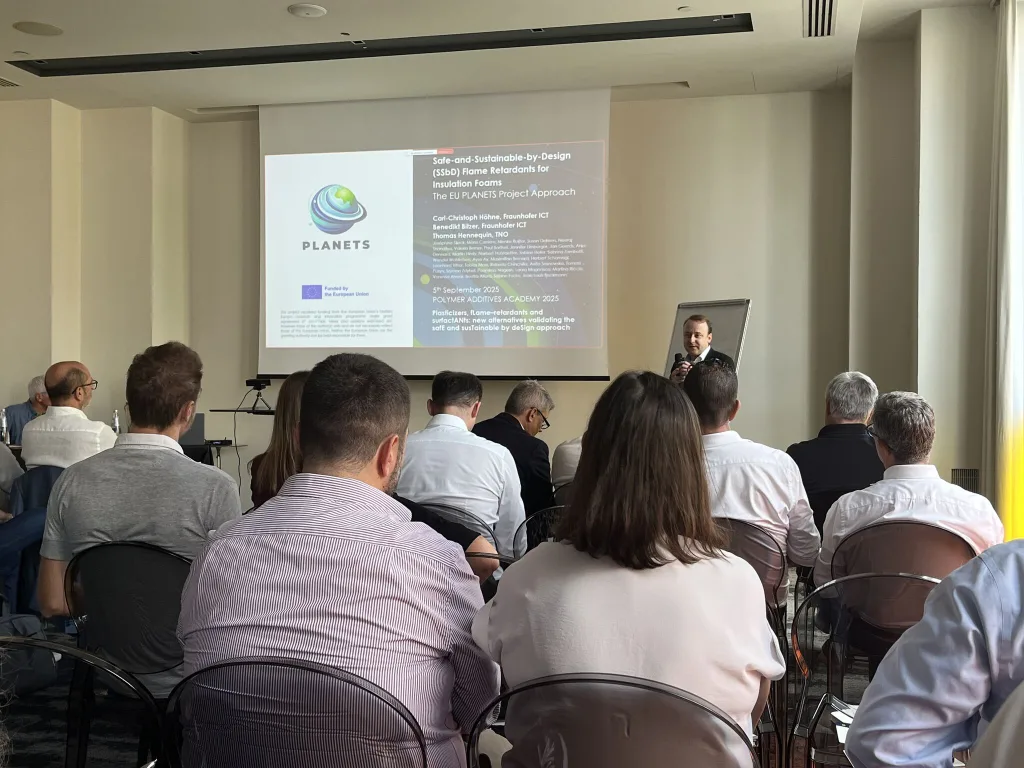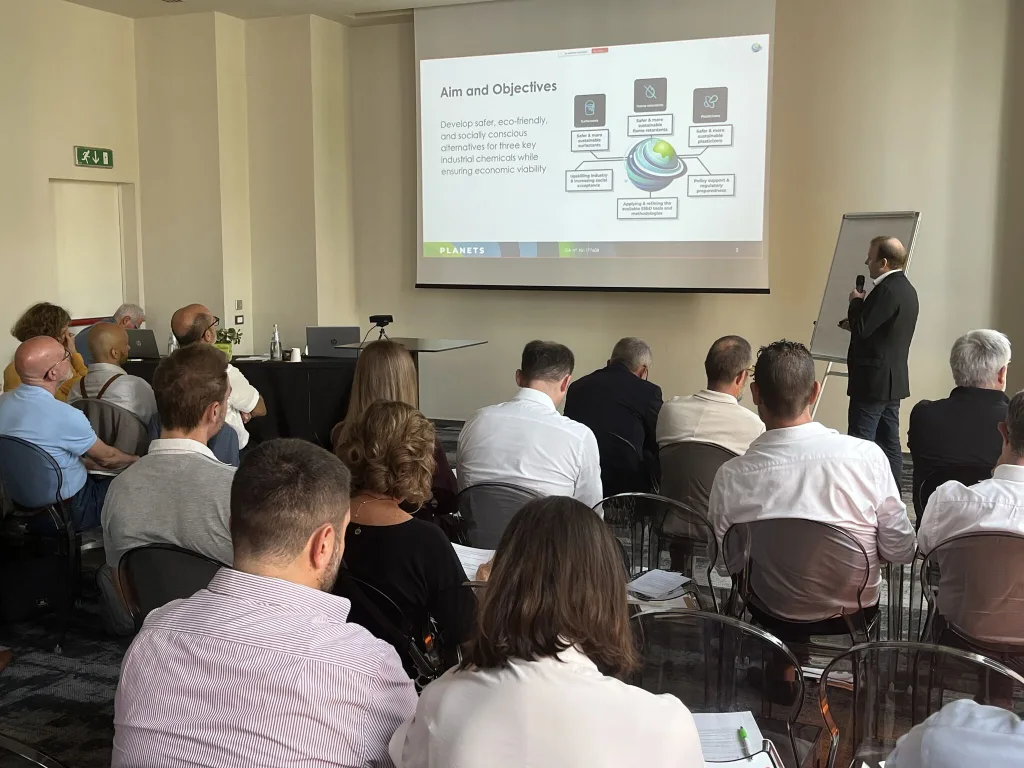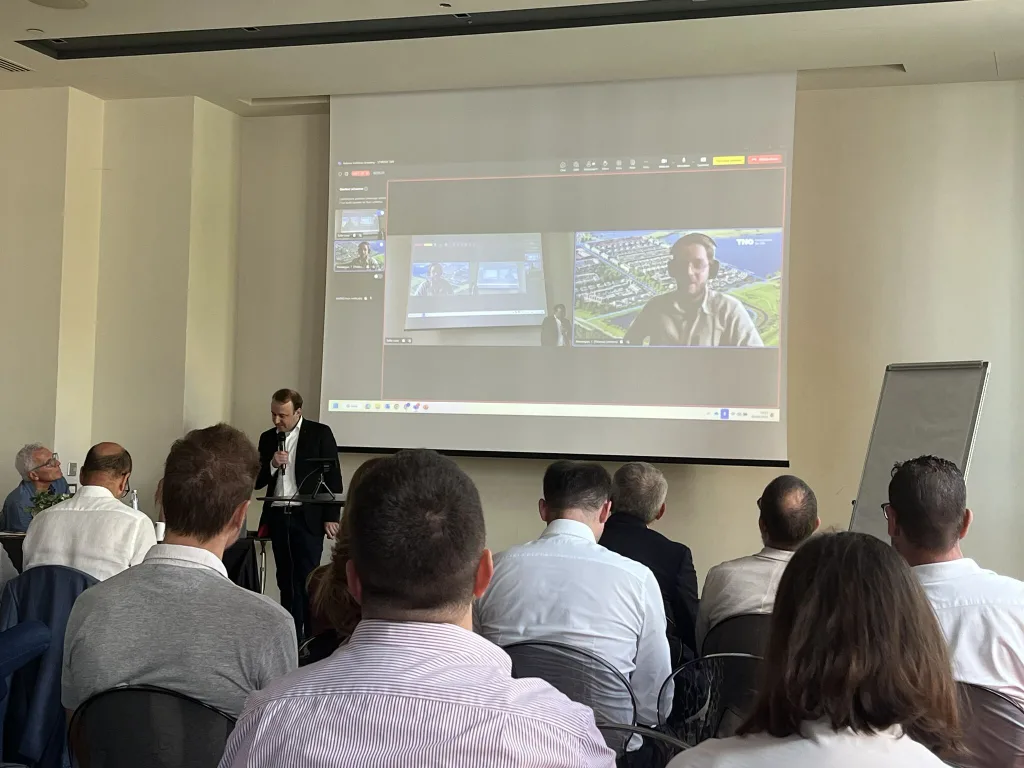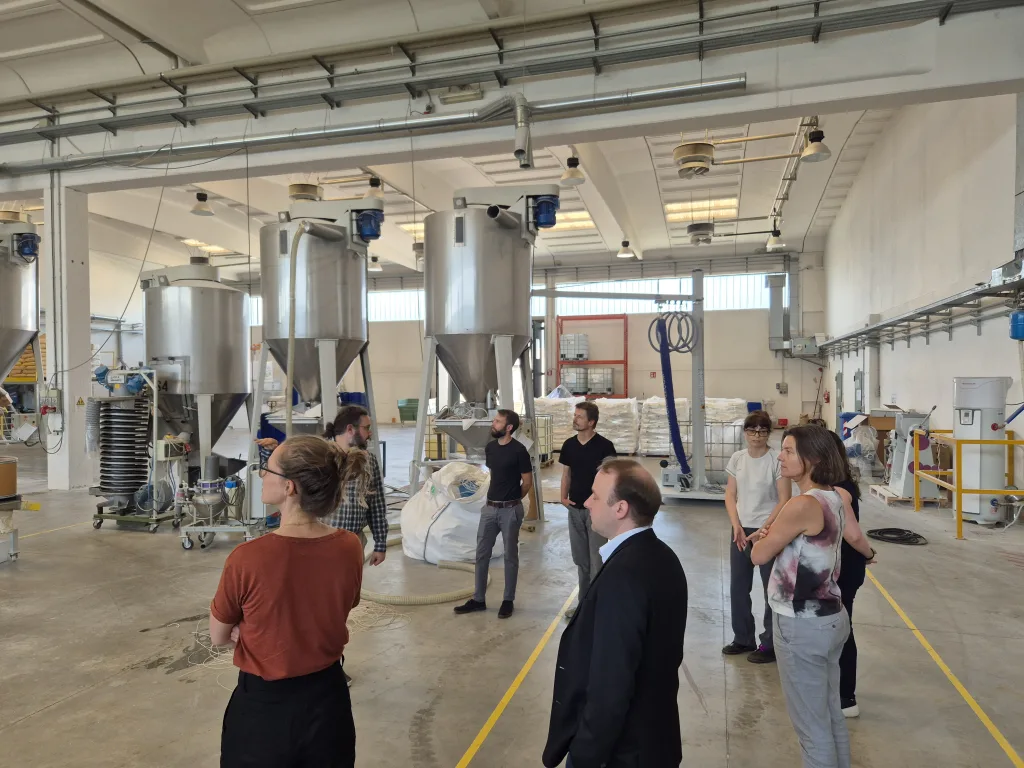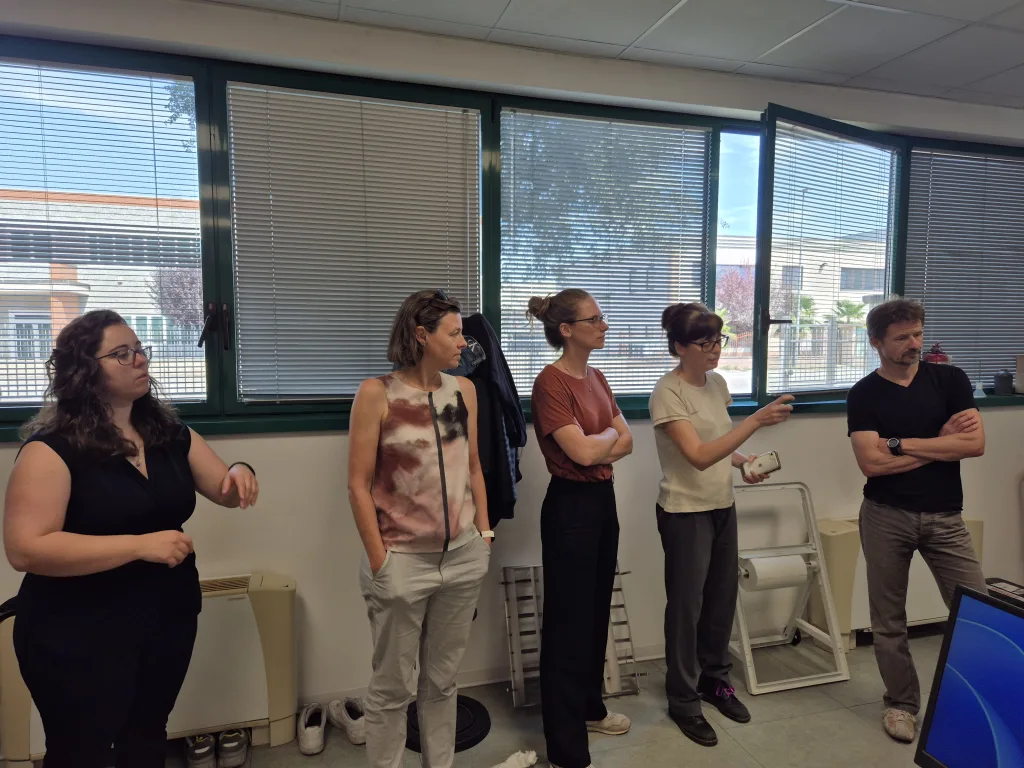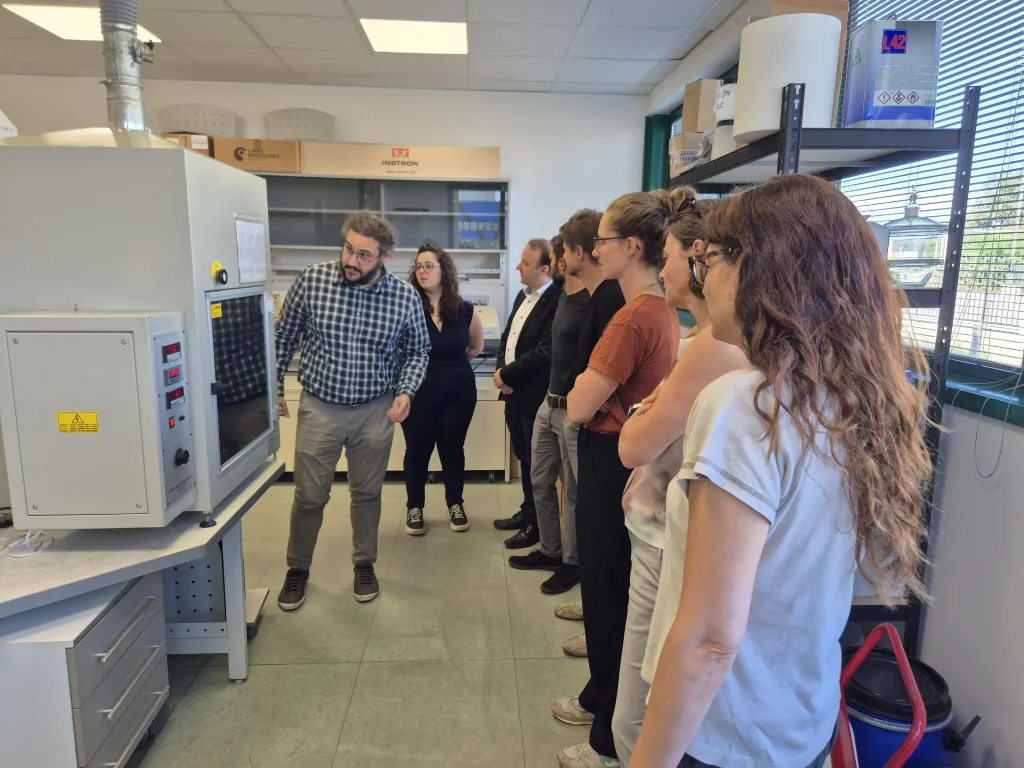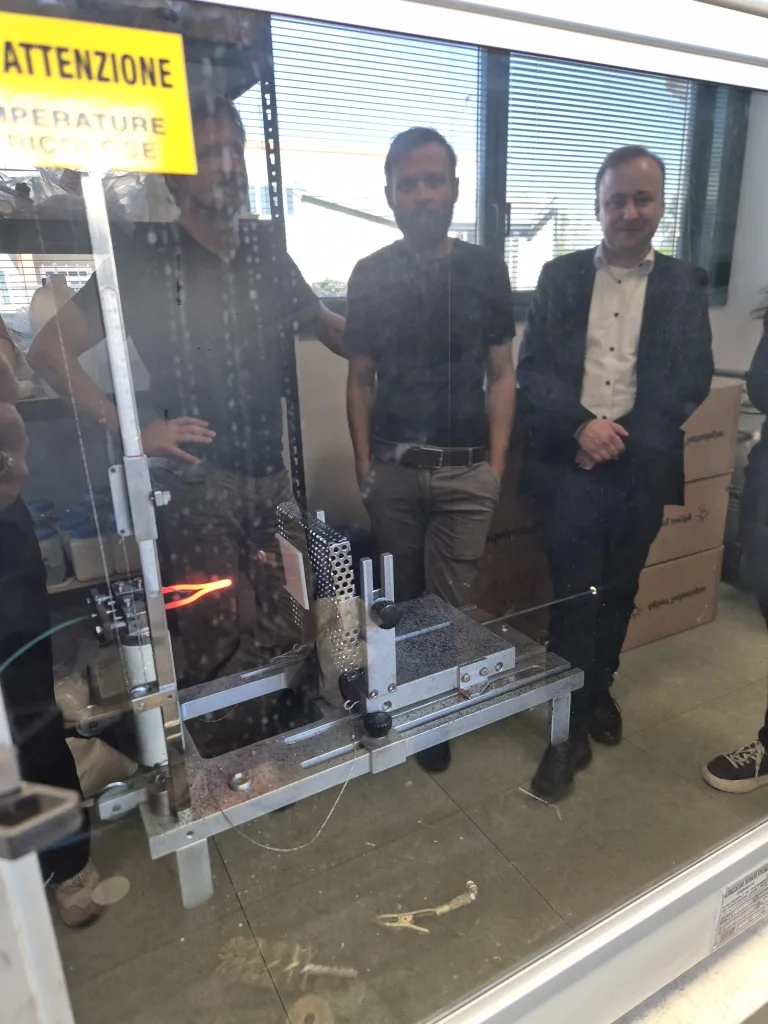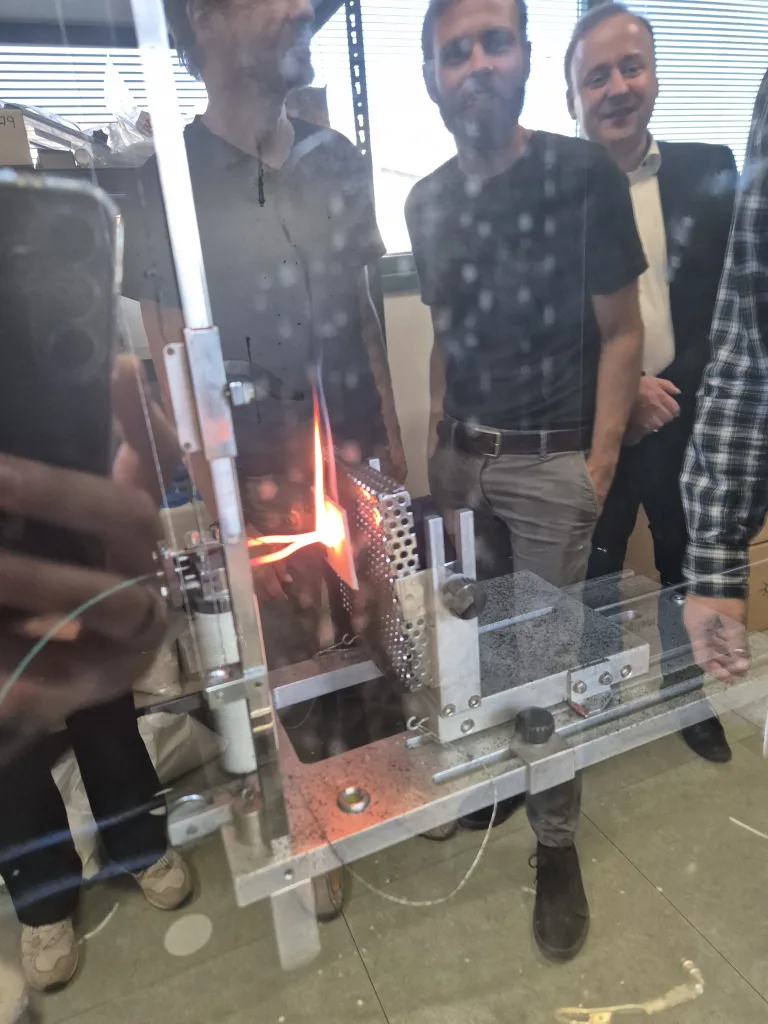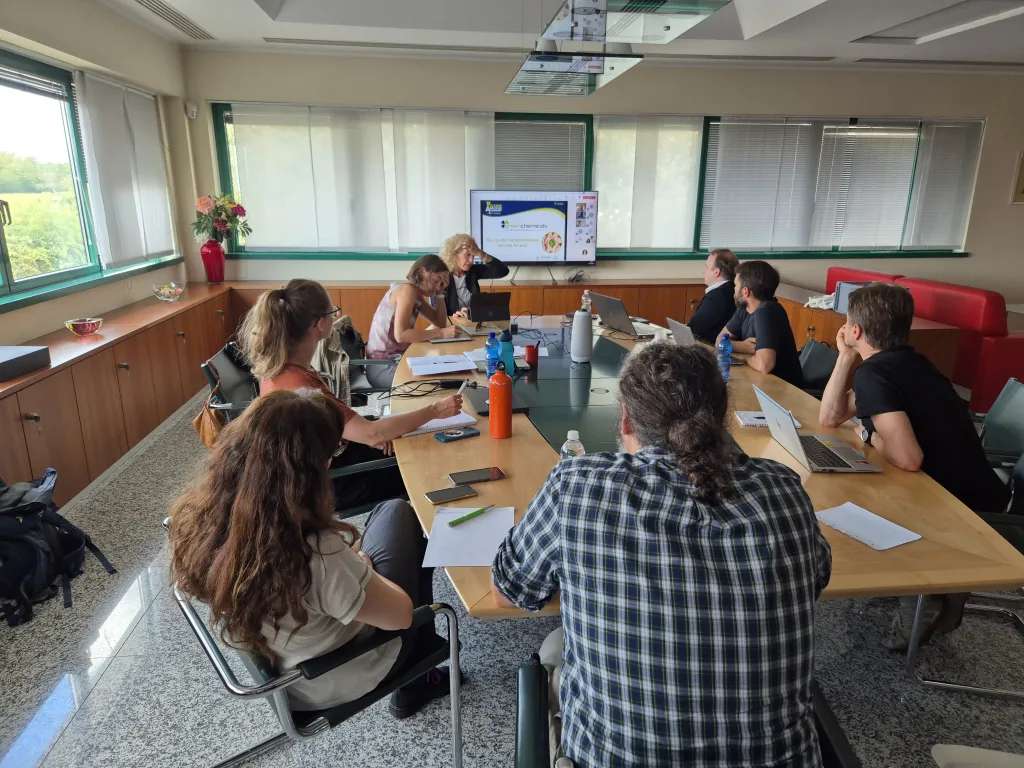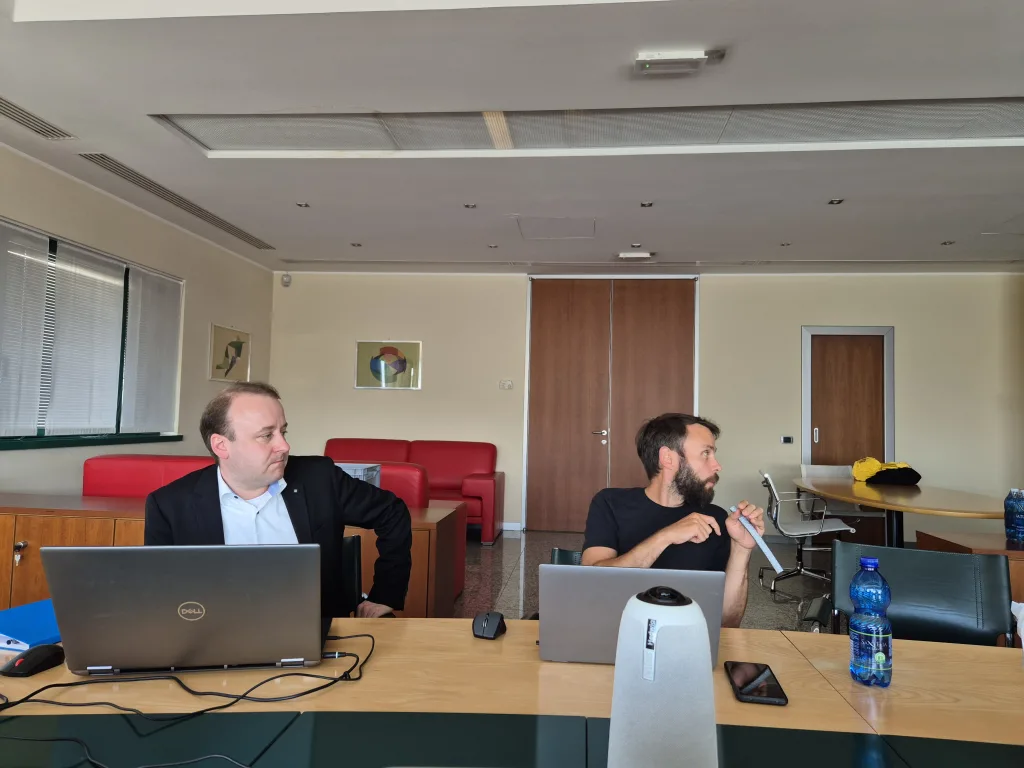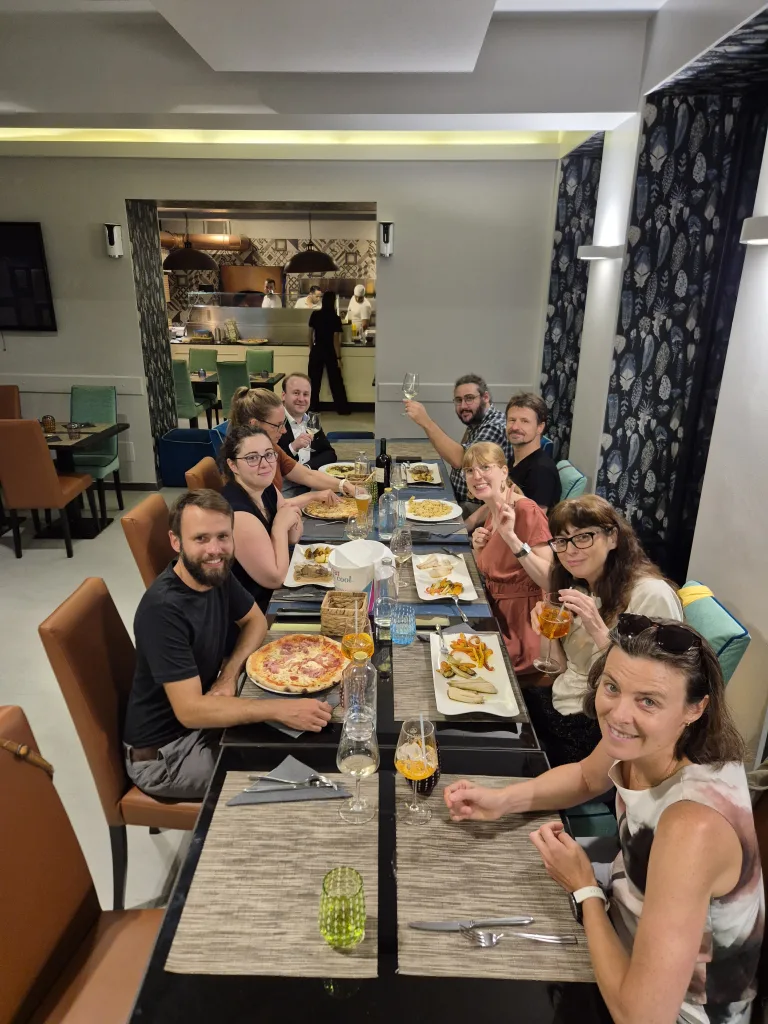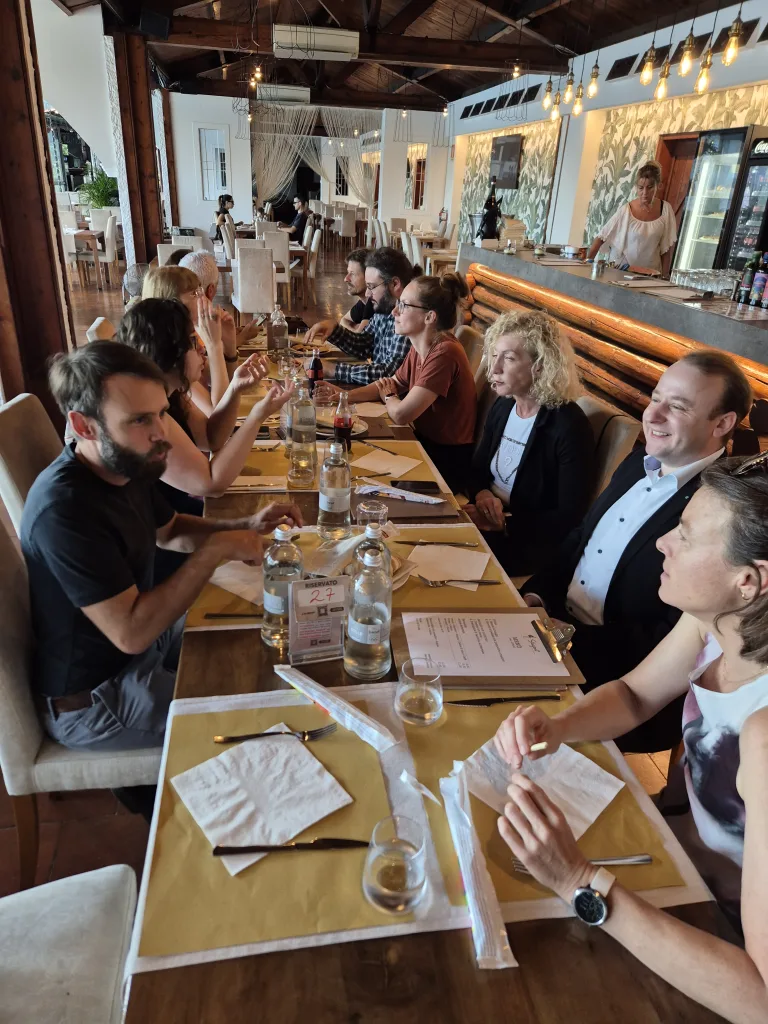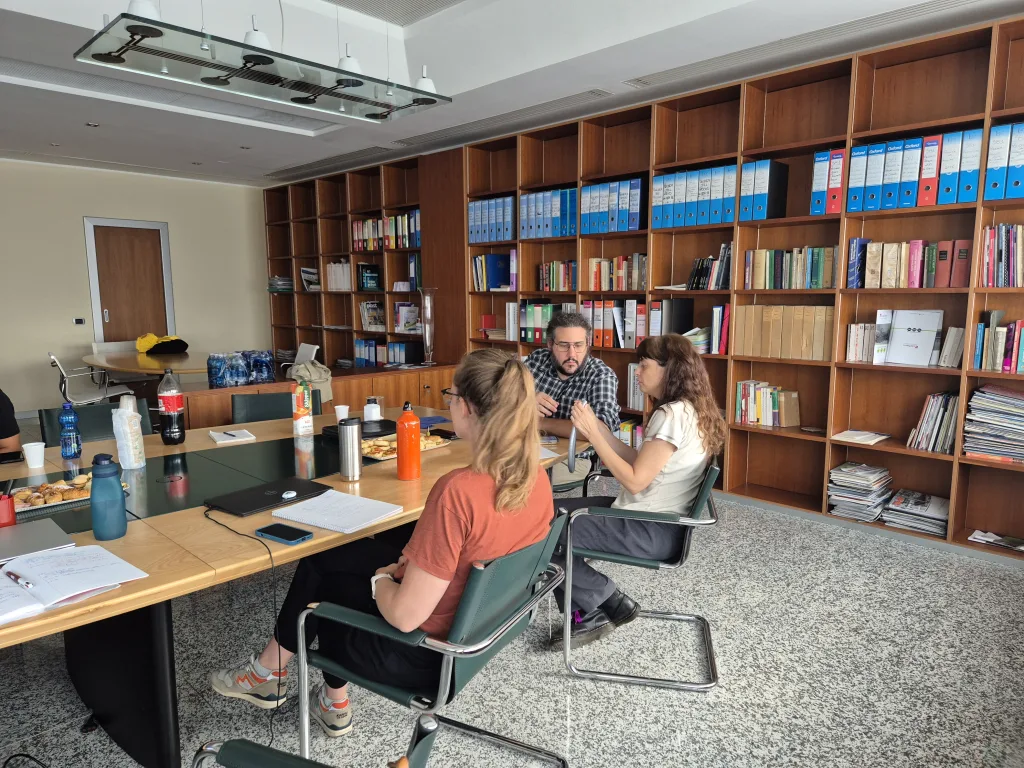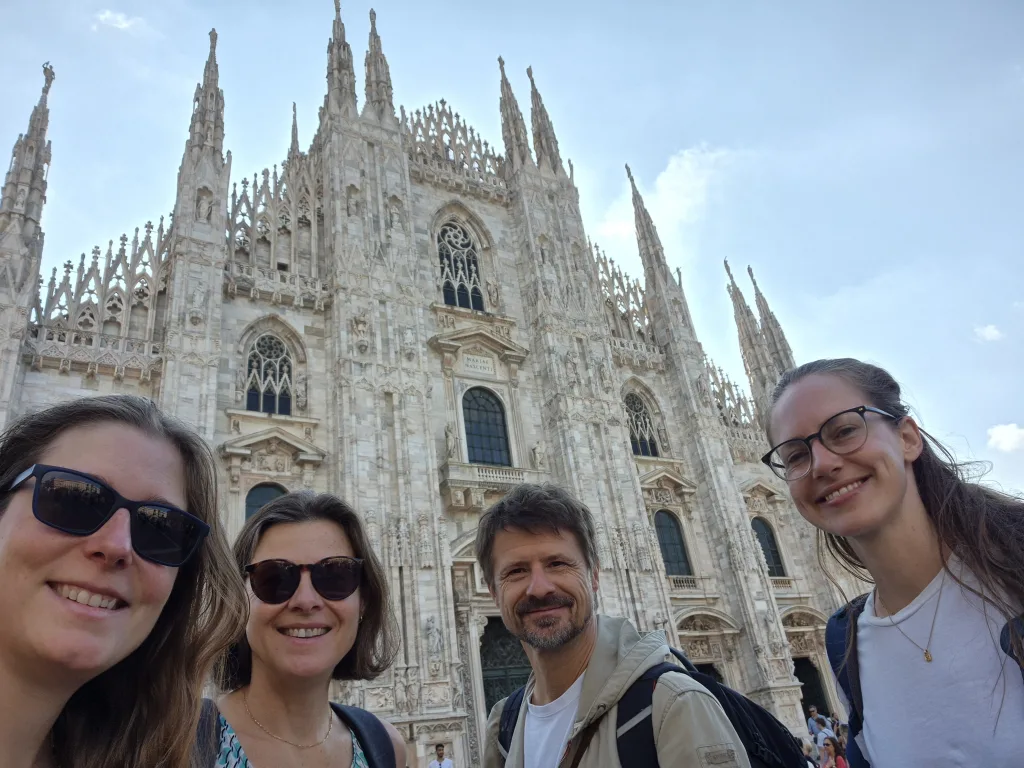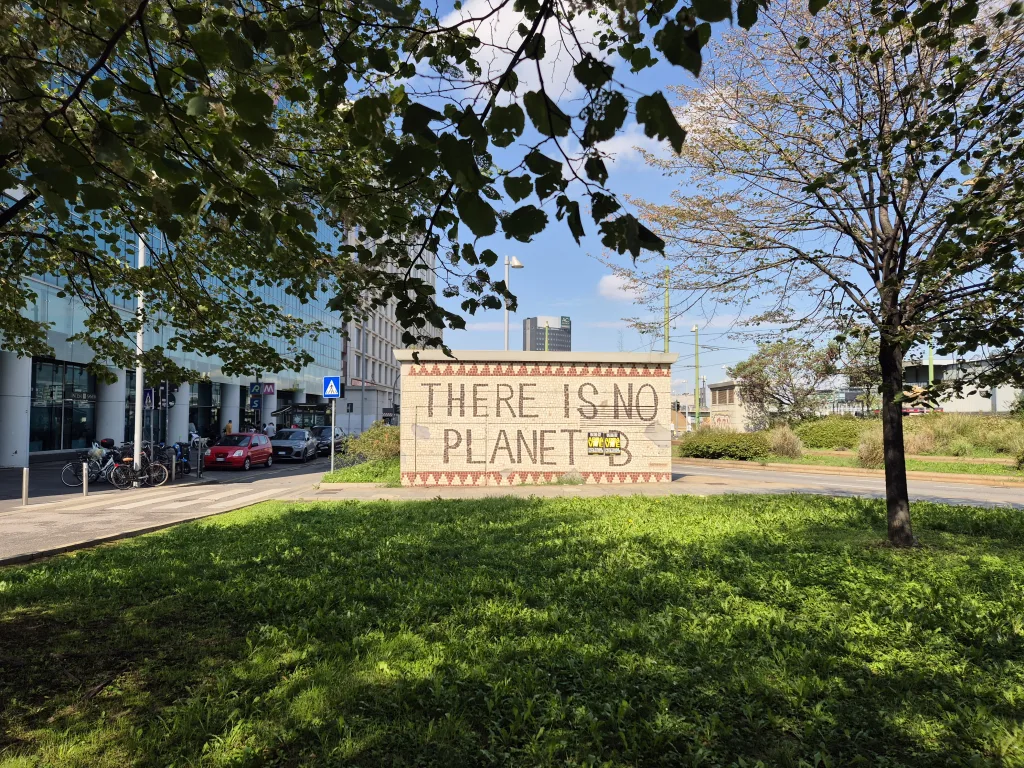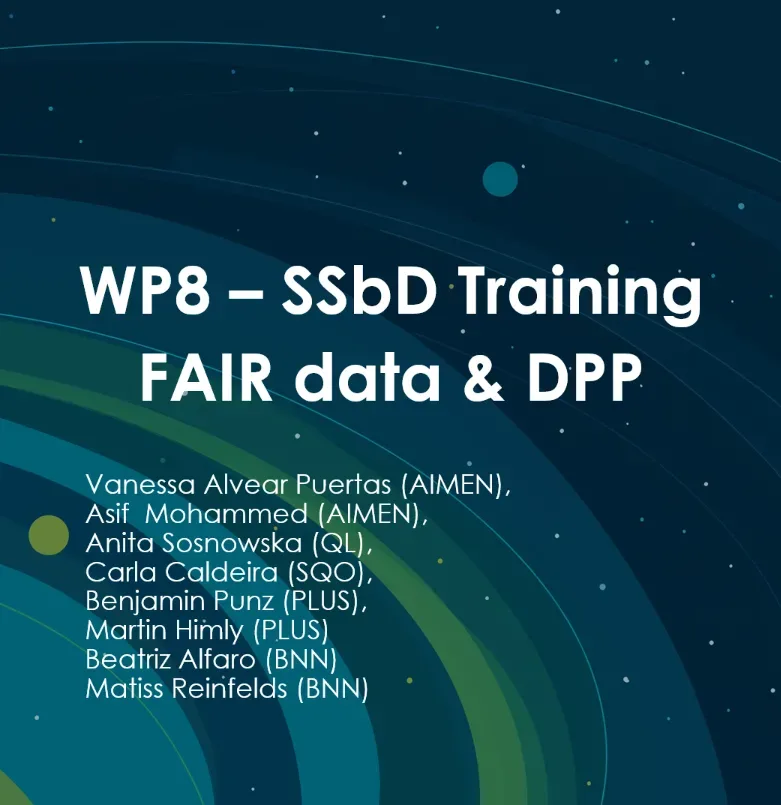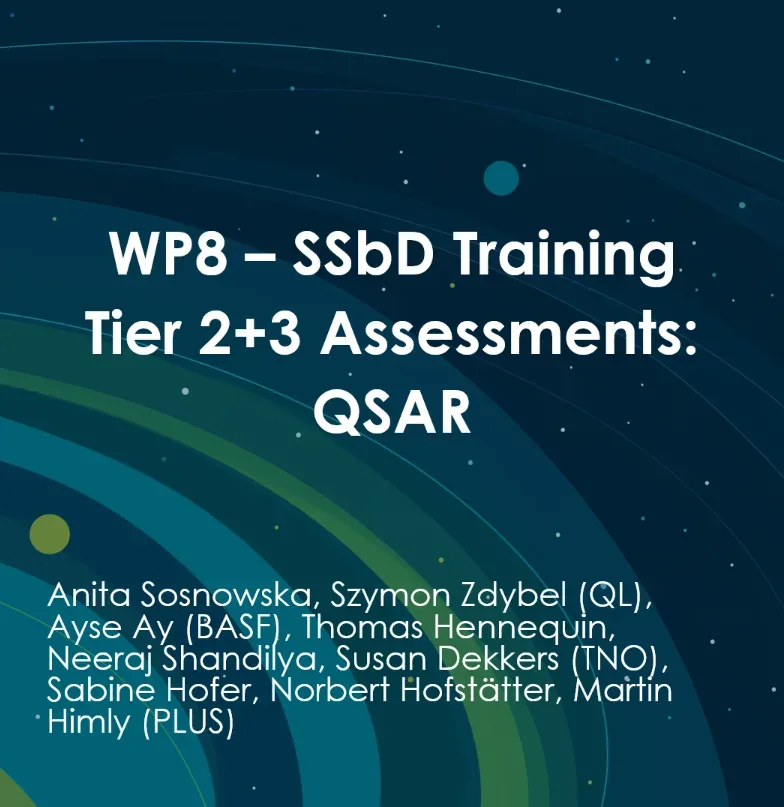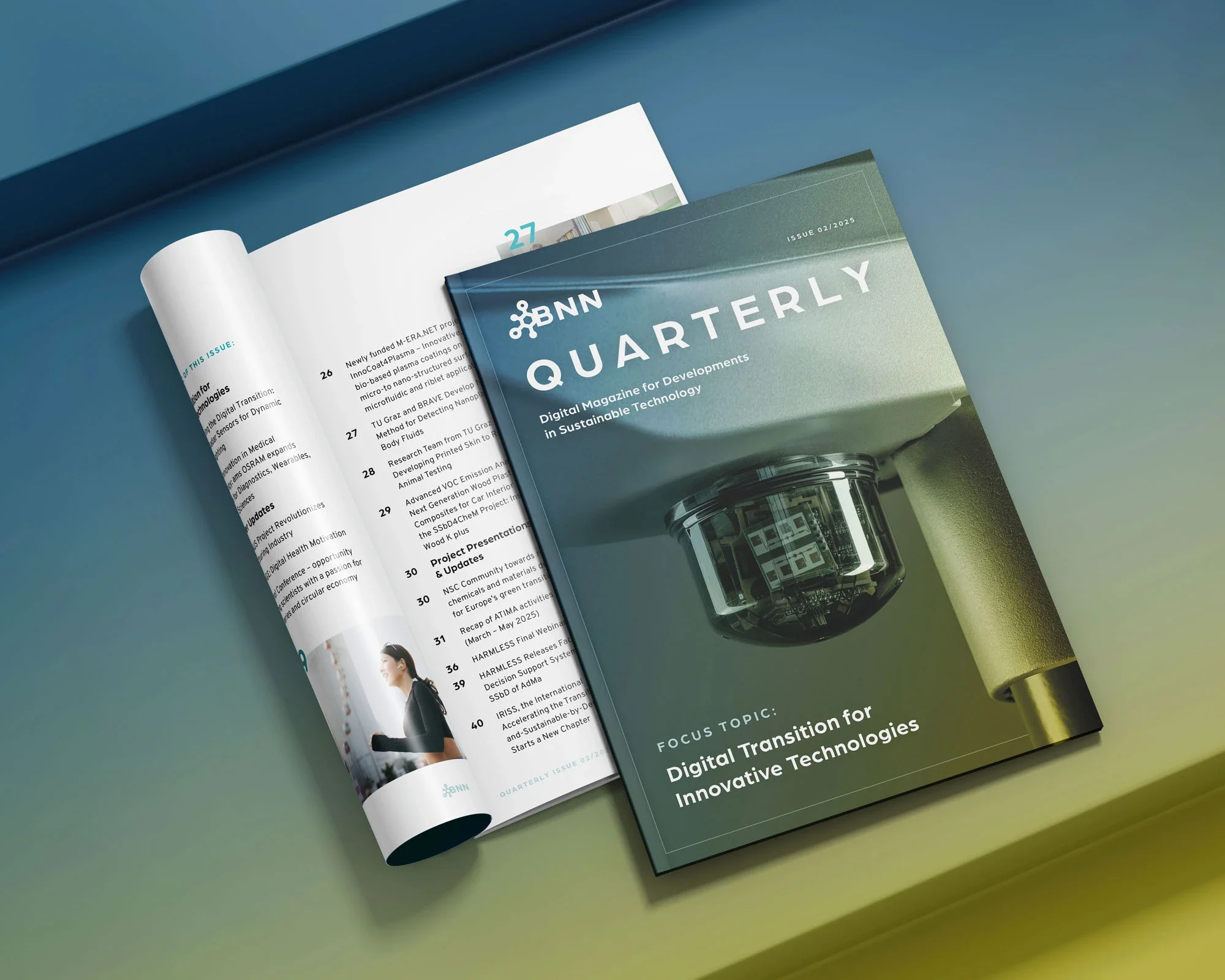Recap Venice Training School 2025
Innovating with Purpose: A Hands-on Journey into Functional, Safe and Sustainable Advanced Materials
Every year, usually, a vibrant community of young researchers and seasoned experts convenes in the historic centre of Venice for the Venice School. The 13th edition of the Venice Training School took place from 9th to 13th June 2025 to focus on advancing knowledge and practice in Safe-and-Sustainable-by-Design (SSbD) assessment and decision-making for advanced materials (AdMa) and chemicals, and explore cutting-edge methodologies for ensuring the safety, functionality, and sustainability of innovative materials.
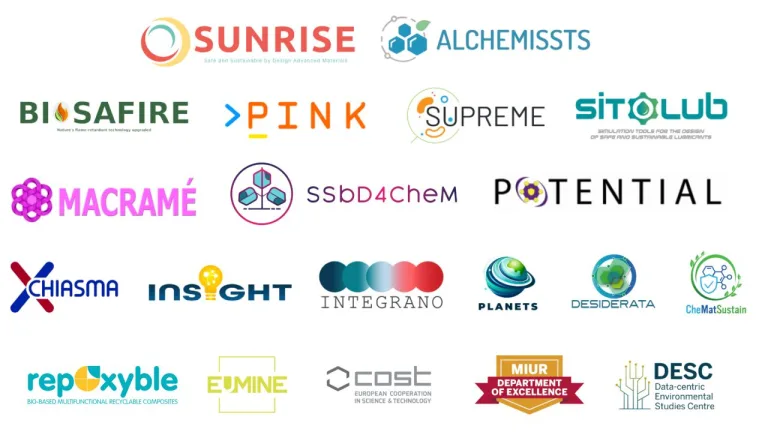
Jointly organised by the EU funded projects AlChemiSSts, BIOSAFIRE, CheMatSustain, CHIASMA, DESIDERATA, EuMINe Cost Action, INSIGHT, INTEGRANO, MACRAMÉ, PINK, PLANETS, POTENTIAL, REPOXYBLE, SiToLub, SSbD4CheM, SUNRISE, SUPREME, SURPASS, supported by the Ca’ Foscari University Venice, and having the NSC as a special partner, this edition of the school brought in international perspectives on a number of topics, including:
- Setting the scene: SSbD policy context in the EU
- Environmental, health and safety assessment (Steps 1-3 of EC-SSbD framework), including Intrinsic hazard properties, New Approach Methodologies (NAMs), and Relevance of in vivo studies (invertebrate and vertebrate models)
- Integrated Life Cycle Sustainability Assessment (ILCSA) (Steps 4-5 of the EC-JRC SSbD framework), including Environmental Life cycle assessment (LCA), Social LCA, and Lifecycle Costing
- Integrating functionality considerations into SSbD workflows: the role of material characterization and the assessment of functional performance
- Addressing the complexity of advanced materials and their interactions: Multiscale modelling and multidimensional analysis
- Enhancing the uptake of SSbD by industry, especially SMEs: user-friendly decision support tools
Over 100 participants from 30 countries across Europe, Asia, and America joined the event, which featured interesting lectures and practical hands-on sessions prepared by 44 lecturers and instructors from 35 organisations in 14 European countries. The sessions aimed to foster an integrative understanding of the school’s topics, providing an interactive learning environment and direct access to key experts.
Here are some numbers about the background of the participants: 32% postdoctoral and senior researchers, 17% PhD students, 3% master students, 13% consultants, 13% SME CEOs & managers, 3% technical staff, 5% University professors, 3% R&D specialists, 2% laboratory heads, and others from academia, policy, and industry, as well as representatives of the European Commission.
During the four days, participants were able to gain in-depth interdisciplinary understanding of key topics about the safety and sustainability of advanced materials, engage in dialogue with peers and experts on a variety of cutting-edge topics, gain needed skills to drive responsible innovation, as well as benefit from networking opportunities in a relaxed atmosphere. The hands-on training sessions provided a unique opportunity to bridge the gap between theory and real-world applications.
This edition featured contributions from representatives of the JRC and the European Commission, who shared insights on the latest advancements in SSbD.
Special thanks go to Susanne Resch and Beatriz Alfaro (BNN), Paola Basso, Marilena Uliana and Danail Hristozov (Greendecision), Yasemin Ertugrul and Judith Friesl (YORDAS), Stefania Melandri & Giulia Mora (Warrant Hub), Martin Himly (PLUS) and all the members of the organising and scientific committees for making this edition of the school such a huge success!
The PLANETS project was heavily involved in the organisation of the School, with Beatriz Alfaro, Susanne Reach (BNN) and CEA in the Organising Committee, and Susanne Reach (BNN) and Martin Himly (PLUS) in the Scientific Committee.
Training materials:
- Agenda is available here
- Recordings are available on the NSC YouTube channel – Playlist Venice School 2025
- Book of abstracts and all teaching materials are publicly available under a Creative Commons Attribution 4.0 International license – DOI: 10.5281/zenodo.17305646
Some highlights of the 4 days of the Training School are available here.
